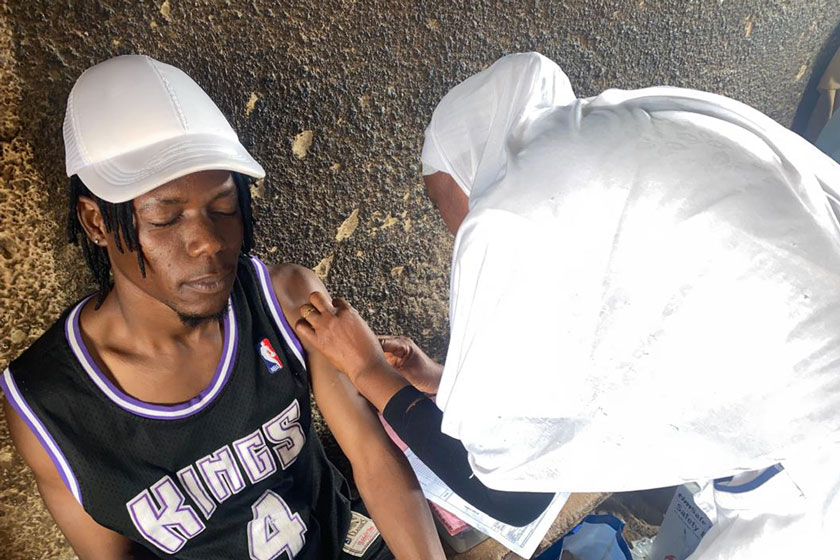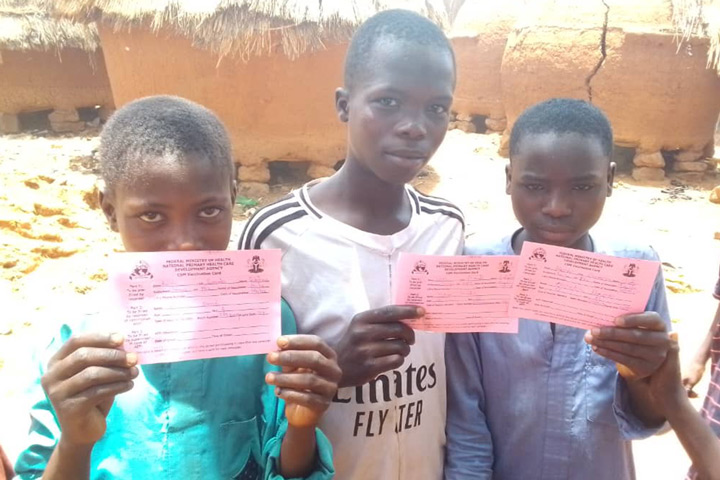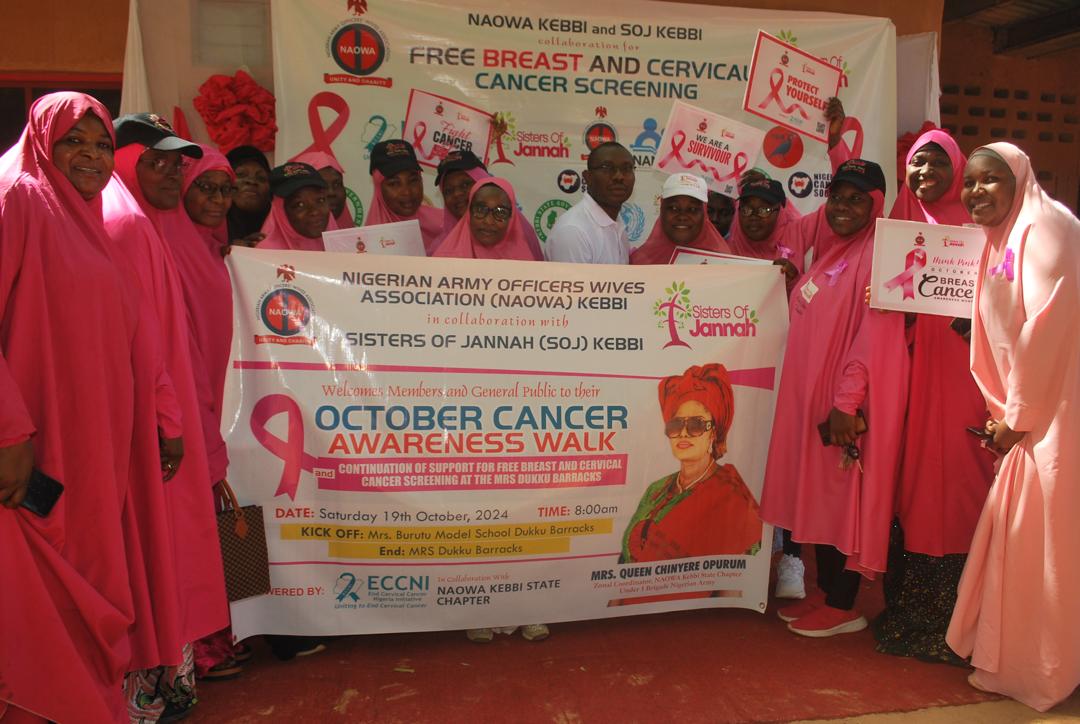Medics in the firing line: Nigerian health workers tell stories of courage
Across the world, health workers brave conflict, emergencies and disasters, risking their lives to save the lives of others. VaccinesWork spoke to doctors and nurses in conflict-afflicted areas of Nigeria to learn what keeps them going.
- 22 February 2024
- 8 min read
- by Eric Dumo
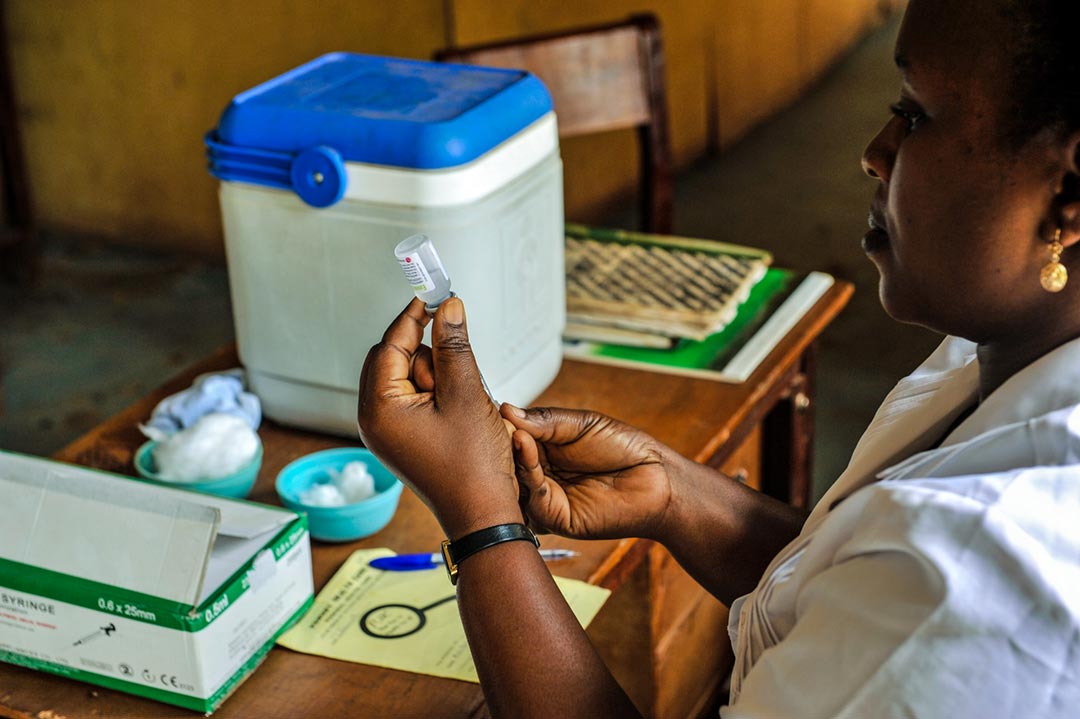
Zainab Barko's phone rang. A child in the small town of Gubio, about 70km south of Maiduguri in Nigeria's Borno state, was suffering convulsions.
Gubio's streets can be perilous: the area is troubled by armed gangs. But Barko, a trained nurse at the government health facility in the town, didn't think twice. She raced out of the facility building as fast as her legs could propel her.
"I fully understand how dangerous it is to work in this part of the state as a health personnel. Some colleagues asked for transfers to other council areas when news of the kidnapping of Dr Bulama broke out in 2022. Even though that incident shook me as well, I never contemplated leaving for somewhere else."
– Zainab Barko, nurse, Gubio
"If I had waited a little longer for a vehicle or motorcycle to convey me to the place when I received that emergency call, the child who was convulsing could have died," Barko said.
"What would happen to them if we left?"
Since 2021, when she was first posted to Gubio, the 33-year-old has become accustomed to working amid personal risk.
She was in the town when, in March 2022, the heavily armed fighters of terrorist group, the Islamic State of the West African Province (ISWAP), invaded the area and abducted her colleague, a young medical doctor named Geidam Bulama. Bulama would be held in captivity for 11 months before being released in February 2023 by the terrorists.
That wasn't Gubio's first – or worst – encounter with violent insurgents. In June 2020, the town was attacked by a band of gunmen, who murdered 81 people and abducted 7 during the assault.
"I fully understand how dangerous it is to work in this part of the state as a health personnel," Barko told VaccinesWork.
In Gubio, she numbers among 16 health workers who stay on despite the risk, providing badly needed medical services to residents of the town and the several villages surrounding it.
"Some colleagues asked for transfers to other council areas when news of the kidnapping of Dr Bulama broke out in 2022. Even though that incident shook me as well, I never contemplated leaving for somewhere else," she said.
"I look at the little children, the old women, who are too weak and almost helpless. I think about what would happen to them if the few of us here leave over safety concerns. These thoughts run through my head all the time and it is where I find the strength to continue to stay here. It is a sacrifice I have decided to make for the sake of humanity," she added.
We live and contend with danger on a daily basis in this part of the country. The menace of armed gangs who raid and attack communities on a nearly daily basis is very frightening. We are in constant danger here, but as health workers, this is the time when people need our services the most."
– Dr Ahmed Nura, General Hospital Danmusa, Katsina
Apart from Bulama, who has since returned to his duty post in the only government-owned hospital in Gubio, a staggering number of health workers across Borno state have been abducted and attacked in recent years, with the Safeguarding in Conflict Coalition (SHCC) identifying six health worker kidnappings in Borno in 2022 alone. The same report identified 17 incidents of violence against health workers in Borno and Yobe states that year, with ISWAP and Boko Haram named among the perpetrating groups.
"I worry for the safety of others under me"
The situation is, if anything, more troubling still in nearby Katsina in the country's northwest, where 83 health workers have been kidnapped in the last eight years alone. Sixty-five were released on payment of a ransom, 16 others were killed by the abductors.
Dr Ahmed Nura is among those who have chosen to stay, at considerable personal risk, to save lives in this part of Nigeria. In January 2024 alone, he treated at least 40 locals who suffered gunshot wounds during raids by different armed gangs at his duty post at General Hospital Danmusa, Katsina. He is the hospital's medical director, and leads a team of three other doctors and 20 nurses and midwives to provide critical services to the region's bulging population.
"We live and contend with danger on a daily basis in this part of the country," Nura said. "The menace of armed gangs who raid and attack communities on a nearly daily basis is very frightening. We are in constant danger here, but as health workers, this is the time when people need our services the most.
"As head of the hospital where I work, I sometimes worry for the safety of the others under me and that is why I do my best to encourage and motivate them from time to time to continue with their work despite the scale of danger we face every day from armed gangs who kidnap and kill at will.
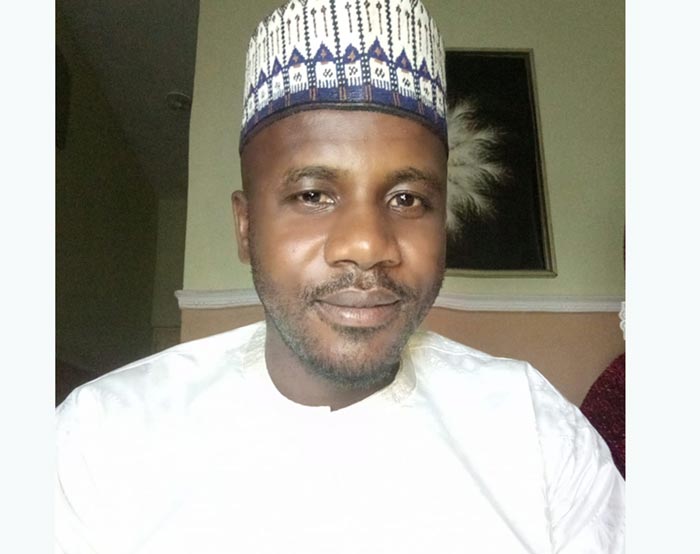
Credit: HumAngle
"As a safety strategy, we now avoid moving around at night. We encourage each other to travel during the day when the roads are busier, and move in groups to increase the chances of survival in case of an attack.
"It is really a tough situation, but we continue to do the best we can to save the lives of the people in Danmusa. The sacrifice we are also making is to honour the memories of colleagues who have lost their lives in the line of duty. The least we can do for them is to stay resilient in the face of the threat we are confronted with daily," Nura added.
"Instinct will tell you to run"
In Batsari, another rural community in Katsina, Dr Umar Saliu, medical director of the area's only government hospital, is only too aware of the threat of murder and kidnapping in this part of Nigeria.
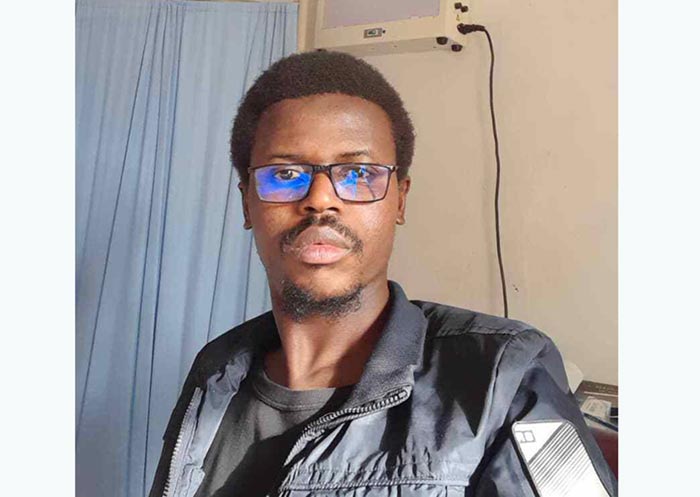
Credit: HumAngle
He was attending to patients at the hospital one evening in December 2023 when insurgents in large numbers invaded the health facility. By the time the dust settled, a technician in the pharmacy unit had been whisked away by the armed gang. Saliu hid in the ceiling of his consultation room to escape being attacked by the invaders that day.
Rather than breaking his spirit, that incident and the many others he has witnessed since 2021 when he was posted to the area, have bolstered his resolve.
Have you read?
"When I first arrived Batsari, I was the only medical doctor in the entire community. It was tough at the time, but I had to keep convincing myself that I could survive here despite the glaring threat to my safety.
"In fact, there have been numerous occasions when all you hear throughout the day is the sound of gunshots. Natural instinct will tell you to run away from the area, but as a medical professional whose joy is saving lives, such a decision is hard to take. I am happy to remain back here to serve despite the threat of terrorists and killers," Saliu, who drives 41km to work from Katsina township to Batsari daily, disclosed.
"Our slogan is injury to one, injury to all"
In Enugu State, too, health workers are also displaying resilience and putting their lives on the line for residents of rural communities.
In just two months in 2023, ten doctors in the south-eastern state fell victim to kidnappings and other violent crimes in the state, according to the Nigeria Medical Association (NMA). The situation has led health workers in the coal-rich city to adopt new techniques to protect themselves while on duty.
"If a colleague is kidnapped, we rally around as a team to ensure we secure the person's release and prevent such from happening again. Our slogan is injury to one, injury to all," said Dr Celestine Ugwuoke, chairman of the Nigerian Medical Association's Enugu chapter.
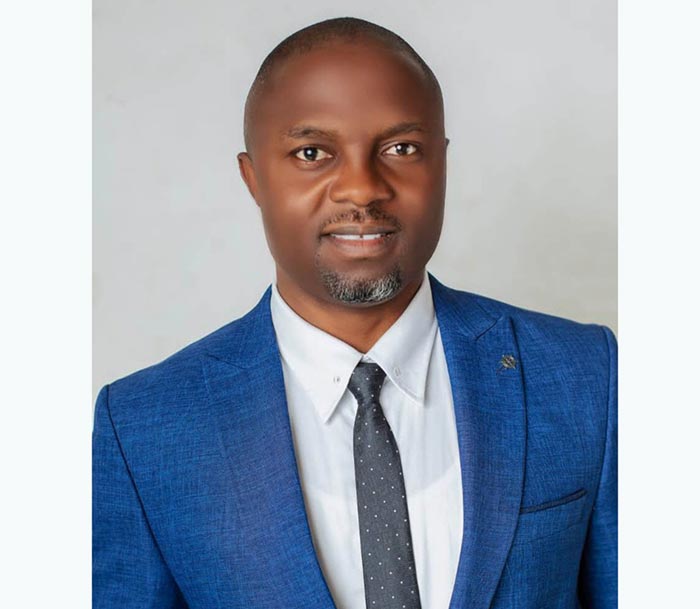
Credit: HumAngle
"Also, we encourage members to stay anonymous while in public. We tell them to remove items from their private vehicles that may easily give them away as medical practitioners. We also advise our people not to move around alone between 7pm and 9pm when most of these crimes take place.
"In and around government hospitals in Enugu, secret police officers have been strategically stationed, while surveillance cameras have also been installed to help improve security around such facilities.
Dr Umar Saliu was attending to patients at the government hospital of Batsari, Katsina, one evening in December 2023, when insurgents invaded the facility. By the time the dust settled, a technician in the pharmacy unit had been whisked away by the armed gang. Saliu hid in the ceiling of his consultation room to escape attack]
"As doctors and health workers in general, we have grown to imbibe the culture of sacrifice and that is why it is difficult for many of us to abandon the people despite the insecurity in the places where we work.
"We will continue to discharge our duties no matter the danger and threat to our lives," Ugwuoke stated.
Thinning workforce?
In a country where only about one doctor is available per 10,000 people – the World Health Organization recommends a ratio of one doctor per 500 patients – the personal risk faced by so many of that thinning workforce risks aggravating a precarious situation further.
The government must offer adequate compensation, insists Michael Nnachi, President of the National Association of Nigerian Nurses and Midwives, to workers putting their own safety on the line.
"The government must adequately recognise these workers for their efforts and sacrifices. Most of our members working in rural areas are facing a lot of danger, yet they have never abandoned their duty posts. This is a huge sacrifice, and they should be celebrated for displaying such courage," he added.
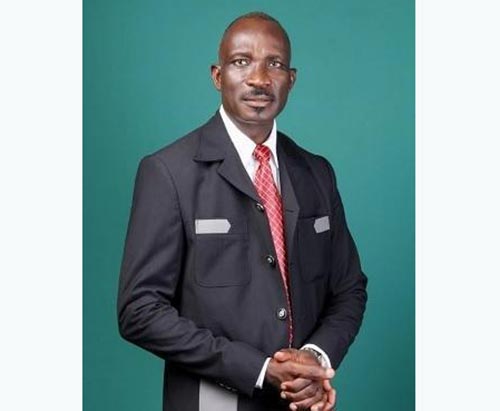
Credit: HumAngle
In September 2023, Nigeria's Minister of Health and Social Welfare, Ali Pate, commended the resilience of the country's health workers. He called on stakeholders to support government's efforts to improve the situation.
"There are many health workers who have been kidnapped in the course of doing their work in rural areas in different parts of the country, yet health workers have continued to work hard to deliver services.
"It should include everyone, not only the public sector but the private sector in the conversation," Pate said during a live television programme at the time.

